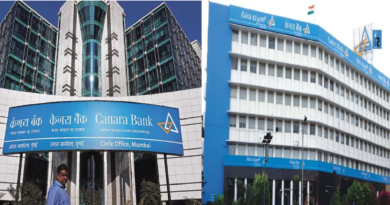Draupadi Murmu Will Be NDA’s Presidential Candidate
Draupadi Murmu will be NDA’s presidential candidate and will compete with Yashwant Sinha: Draupadi Murmu.
While the NDA has declared Draupadi Murmu, who hails from the tribal community, as its candidate, the opposition parties have jointly fielded Yashwant Sinha.
Murmu has been the former Governor of Jharkhand present. Whereas Yashwant Sinha is a native of Jharkhand.
If seen in this way, this time Jharkhand is going to give the next President to the country. Draupadi Murmu’s name was announced by BJP President JP Nadda in a press conference.
Before this, a meeting of the BJP Parliamentary Party was held to decide the candidate, in which many names were discussed in depth.
Nadda said that we tried to build a consensus with the opposition, but as things did not work out, we decided to field our candidate in Tuesday’s meeting.
Around 20 names were discussed during the meeting. In which it was decided that this time another tribal woman from eastern India should be given a chance.
If Draupadi Murmu is elected to the presidency, she will be the first tribal woman to hold the highest constitutional post.
He is almost certain to be elected as the President, considering the arithmetic of numbers in favor of the BJP-led NDA.
Murmu is originally from Odisha. Born in Mayurbhanj district, Draupadi has been an MLA from Rairangpur seat.
Opposition parties played bets in the name of Yashwant.
Earlier in the presidential election, opposition parties announced to field former Union Minister Yashwant Sinha as their joint candidate.
Almost all the parties in the opposition, including Congress, TMC, SP, CPI(M)-CPI, NCP, and DMK, in their meeting held on Tuesday, unanimously decided to field Sinha as the presidential candidate.
Through this decision, the opposition parties have tried to give the first message of a political fight against the BJP-NDA with their solidarity and common strategy on the future political path.
Yashwant Sinha will file his nomination as the opposition’s presidential candidate on June 27.
After declaring Yashwant Sinha as the Presidential candidate, the opposition parties also played their political gambit by appealing to the BJP to support him.
But it is clear from the current political reality that there will be a one-on-one contest between the ruling party and the opposition for the presidential election and the NDA clearly has the upper hand in terms of the equation of votes.
On the initiative of Sharad Pawar, 15 opposition parties met at the Parliamentary Annexe to decide the Presidential candidate and it did not take long for these parties to agree on Yashwant Sinha’s name.
Congress’ communications and media general secretary Jairam Ramesh announced to reporters after the meeting that the opposition parties have unanimously decided to field Yashwant Sinha
BJP and its allies should also support Sinha: Jairam.
Taking a dig at the government for not taking a serious initiative to seek consensus for the presidential election.
Jairam said, “We appeal to the BJP and allies of the government to support Yashwant Sinha as the President so that the country can elect a deserving President unopposed.”
According to the opposition camp, Sinha will file his nomination for the presidential election on June 27 at 11.30 am.
A committee consisting of leaders of major opposition parties will be formed to conduct his election campaign.
It was the Trinamool Congress chief who suggested Sinha’s name.
Trinamool Congress chief Mamata Banerjee proposed Yashwant Sinha’s name to the opposition camp after Sharad Pawar, Farooq Abdullah and Gopalkrishna Gandhi refused to be the opposition candidates in the presidential election.
A vocal critic of the policies of the Modi government over the years, Sinha, a former BJP leader, had recently joined the Trinamool Congress and was also the party’s senior national vice-president.
But just before the opposition meeting to decide the presidential candidate, he tweeted and announced his separation from the Trinamool Congress for a bigger national responsibility.




